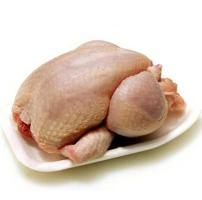Food additive may inhibit C. perfringens in poultry

A new US study claims that inorganic polyphosphates (polyP) can be effective as antimicrobial agents against Clostridium perfringens in meat and poultry products.
Inorganic polyphosphates are used as food additives in the meat and poultry industry to protect flavour, maintain “juiciness”, and inhibit rancidity and colour deterioration.
C. perfringens
C. perfringens are found in low numbers in many foods, particularly in meat and poultry products, but food poisoning linked to C. perfringens is the 3rd most commonly reported foodborne illness in the US. Unlike many other types of bacteria that cause food borne disease, C. perfringens are not completely destroyed by ordinary cooking as it has been found to produce heat-resistant spores.
Now, researchers from Oregon State University claim a first-time a study has been done on the antimicrobial properties of polyphosphates against C. perfringens. They found a significant reduction of survival in C. perfringens was observed when meat samples contaminated with a cocktail of the bacteria’s spores were treated with one per cent of the polyphosphate, sodium tripolyphosphate (STPP).
As STPP increases water retention capacity in meat products, the researchers used the polyP to determine its antimicrobial effectiveness against C. perfringens in meat. It was discovered that sub-lethal concentrations of polyP significantly inhibited sporulation of C. perfringens by reducing heat-resistant cells. While the spores were able to germinate in the presence of 1% STPP, their outgrowth was significantly inhibited.
“The inhibitory effect of polyP on C. perfringens shown in this work constitutes a major contribution that can help the development of safer meat products,” said the researchers.
Source: Journal of Food Microbiology












